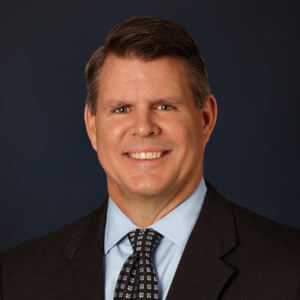Market Overview
How much does your advisor care?
There’s a reason why they’re called “financial professionals.” This is what they do for a living. The good ones know what they’re doing and deserve to be paid a fair fee for the services they provide.
The same can be said about a doctor. This is someone whose intention must be to protect and guide you. Your doctor should know more about you than you would care to have widely advertised. This is a position of absolute trust.
Just as you wouldn’t go to a doctor who sees you as just an income stream of co-pays, you shouldn’t stick with a financial advisor to whom you are little more than a commission.
It’s all about standard of care.
Fiduciary or suitability?
What most people mean by “standard of care” in the financial services industry is the degree to which they are accountable to you legally.
An investment adviser – note the spelling, “-er,” because it’s important – works directly for you, and is governed by the Investment Advisers Act of 1940, which is enforced by the Securities and Exchange Commission. Advisers must adhere to what’s called the fiduciary standard of care which means, essentially, they have to put your interests ahead of their own. If they advise you to buy a security, they have to let you purchase it first before they can acquire it in their own accounts. That’s just the most frequently cited example of the kind of conflict of interest they need to avoid, but there are others. They are also required to ensure that the advice they give you is predicated on sound analysis of accurate and complete information.
And they can’t flip securities in your name just to run up commissions. But while advisers need to ensure your securities are traded inexpensively and efficiently, not all financial professionals are bound by this “best execution” protocol. Broker-dealers need only adhere to the lesser “suitability” standard. While this obliges them to keep transaction costs down and not engage in churning stocks just to juice the number of transactions, and thus their fees, their regulatory burden is less stringent. The Financial Industry Regulatory Authority (FINRA), a non-governmental industry group, patrols broker-dealers, not the SEC, which considers broker-dealers to be intermediaries who serve the interest of market liquidity by connecting investors to securities.
FINRA’s main brief in regard to standard of care is to ensure that the securities that broker-dealers recommend to you suit your best interests. This gives them the opening to sell you whatever securities they have in their own account that they no longer want to hold as much of. That’s not necessarily bad for you, but it’s not necessarily good for you either, and it does provide a lot of room for broker-dealers to profit from their relationship with you in ways you might not have expected. Or appreciated.
But there’s more
If only it were so simple: “Advisers are on your side. Broker-dealers are on their own. So, you’re better off with an adviser.”
But the applicable standard of care is not the same thing as care. It is entirely possible to have a broker-dealer who is more concerned about your personal prosperity than an adviser who is too busy to advise all of his clients adequately.
That’s why it’s important to know, before entering into a client relationship with a financial professional, which set of rules they play by and who regulates them. Within that stratum, though, you also need to find the one with the right mix of skill and a sincere desire to do good by you.
And beyond skill and sincerity, does the financial professional have access to the requisite structure and support team? A well-equipped adviser has routine procedures to address planning needs like determining the best vehicle for retirement savings or how to prepare a client for the estate planning process. And an excellent adviser is going to have a deep support team and network of experts.
A great adviser is going to be many things and wear many hats because that is what their clients will need. It’s not about meeting minimum standards created by a faceless regulatory body. A client standard of care is about repeatable processes and procedures to make the complexity of finances manageable.
Just as all doctors take the same oath but some mean it more than others, all financial professionals have regulations they have to follow, but some are eager to serve their clients while others may be doing their best to just not get caught coloring outside the lines.
Make sure your adviser is the first kind.
 Chris Lott, CFP®, CPA is a Managing Partner at Smith Anglin Financial, and is a member of the firm’s Investment Committee. He regularly meets with prospective clients, counsels existing clients, leads investment portfolio analysis and develops materials for communicating with the firm’s clientele and target markets.
Chris Lott, CFP®, CPA is a Managing Partner at Smith Anglin Financial, and is a member of the firm’s Investment Committee. He regularly meets with prospective clients, counsels existing clients, leads investment portfolio analysis and develops materials for communicating with the firm’s clientele and target markets.


